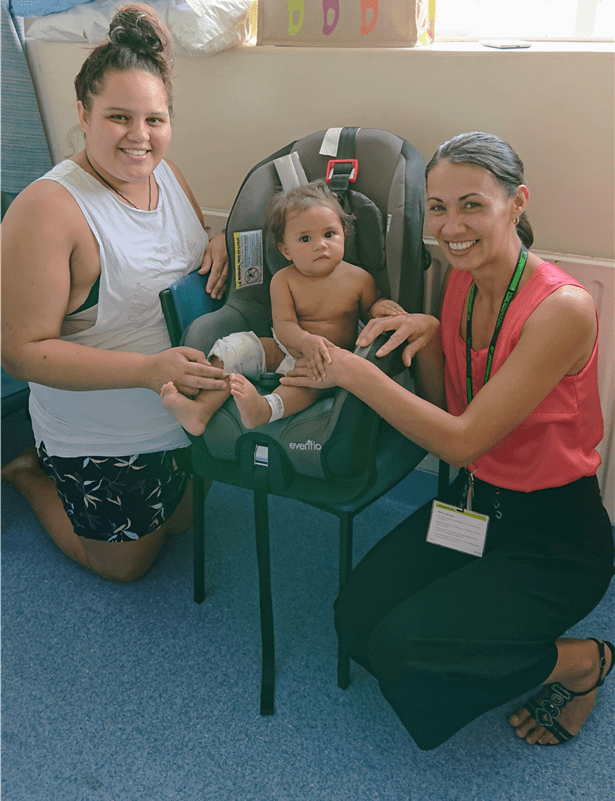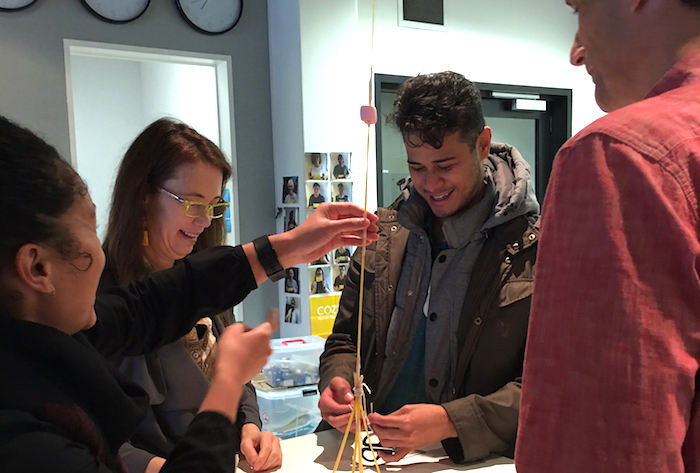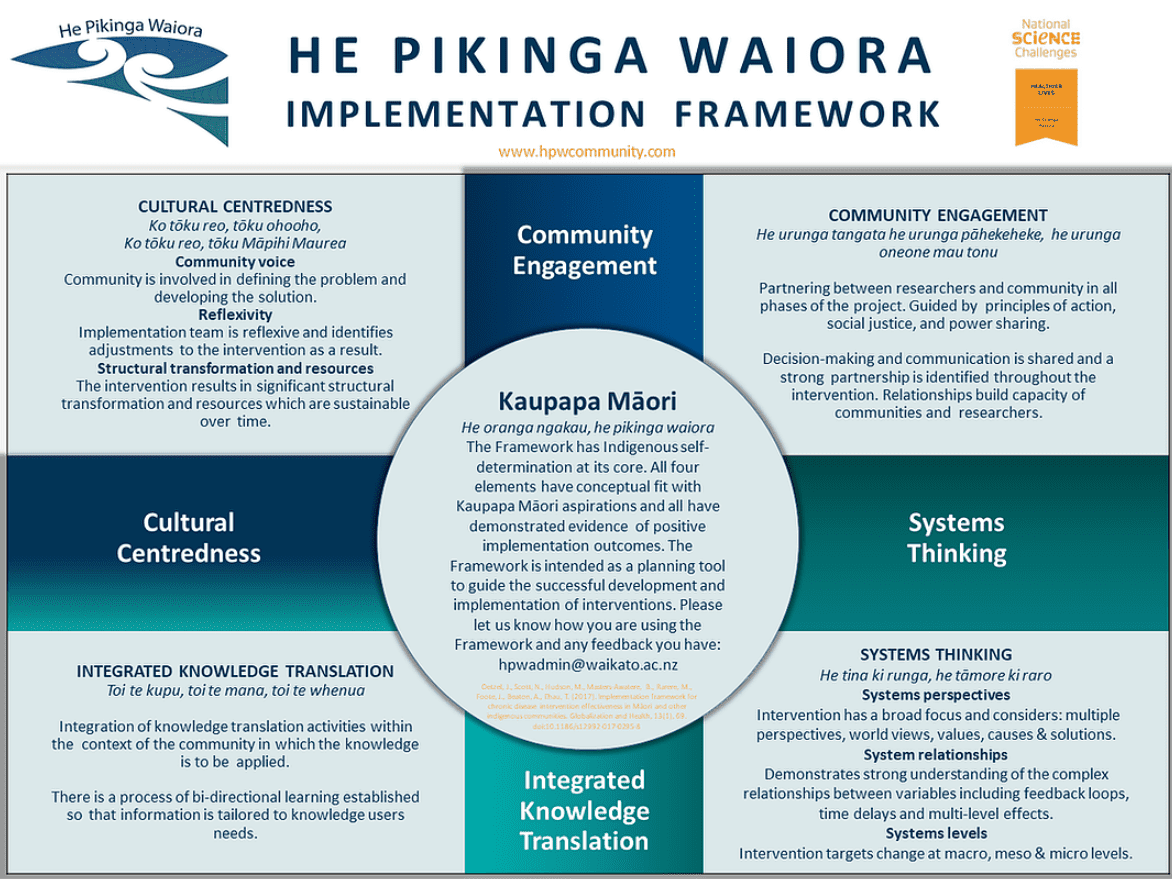He Pikinga Waiora Framework in action
1 November 2021
The Covid-19 pandemic response has highlighted the extent of health inequities in Aotearoa New Zealand. Disparities have long existed and continue to persist between different populations not only for infectious, but also non-communicable diseases, such as cancer, diabetes, obesity and heart disease.
In the first phase of Healthier Lives research, He Pikinga Waiora (HPW) developed a framework to support the co-design and evaluation of new health interventions so they work effectively for Māori communities. The HPW Framework integrates kaupapa Māori, systems thinking, and implementation science to make transformational improvements in health service delivery.
Working with two community partners, Te Kōhao Health and the Poutiri Charitable Trust, the project team used the HPW Framework to co-design two health interventions to address and prevent the progression of prediabetes to type 2 diabetes.
Since then, the use of the HPW Framework has been broadened. It has been adopted by several research projects working with Indigenous communities in Aotearoa and other countries, and is now being used to help implement a wider range of health services, from meeting the needs of pregnant Māori women (wāhine hapū) to responding to Māori who are accessing the start of the secondary care cancer pathway.
Systems thinking in action

The Harti Hauora Tamariki study, a Waikato-based equity-focused child health programme is an example of systems thinking in action for tamariki (children). This study is led by Dr Nina Scott, Director of Māori Equity Strategy and Research at Waikato District Health Board (DHB) and a member of the Healthier Lives Science Leadership Team. Harti Hauora aims to improve access to health and social services for all children admitted to hospital and their whānau.
“It’s about having a holistic approach to things,” says Dr Scott. “We found that many of the kids aged 0-4 years who are hospitalised with diseases of poverty are being re-admitted within six months. We’re not able to fix the root cause of the disease – poverty. However, there are quite a lot of things we can do, such as making sure they have a warm, insulated house, are enrolled with a GP, are immunised, and the parents get some good smoking cessation support, for example.”
The Harti Hauora screening tool and follow up protocols make it easier for hospital staff, who are more pushed for time than ever due to the Covid-19 pandemic.
New projects underway
Two new projects at Waikato DHB will also use the HPW Framework for health service delivery. The first, funded by the Health Research Council of New Zealand, is looking at the determinants of health for Māori mothers as well as adults with chronic diseases. This study will use a kaupapa Māori co-design process.
The team, partnering with stakeholders, will develop a hauora (wellbeing) tool and programme to assess and meet the needs of wāhine hapū, and for Māori with chronic disease, covering four conditions: cardiovascular disease, diabetes, COPD*, and renal disease.
The second project will use the framework to redesign its Whānau Hauora Integrated Response Initiative (WHIRI) for Māori along the secondary care cancer pathway from referral to diagnosis. The HPW Framework will help guide the co-design process with stakeholders and community to maximise health gains for Māori.
Co-design essential
This Framework involves the concept of co-design: the idea that researchers work with communities and health organisations to collaboratively create interventions, so there’s ownership of the project from the community and organisations that implement it. The high level of community engagement is important – those who will benefit from the intervention have an equal say in what gets done, and therefore it’s more likely to be effective, the researchers say.
Resource toolkit
A toolkit is available to help researchers, community members, clinicians and others put the HPW Framework into action. This is a rich resource for anyone embarking on a co-design project. It contains a raft of useful guidance and tools for, amongst other things, constructing systems maps, assessing readiness to change, developing partnership agreements and designing models. There are also short video testimonials from community members and researchers, offering insights into their experience of an authentic co-design process.
The toolkit is available at the He Pikinga Waiora website: www.hpwcommunity.com
Read more about the He Pikinga Waiora project.
Download the He Pikinga Waiora research findings brief. [PDF]
Read more about the Harti Hauora Tamariki study. [PDF]



